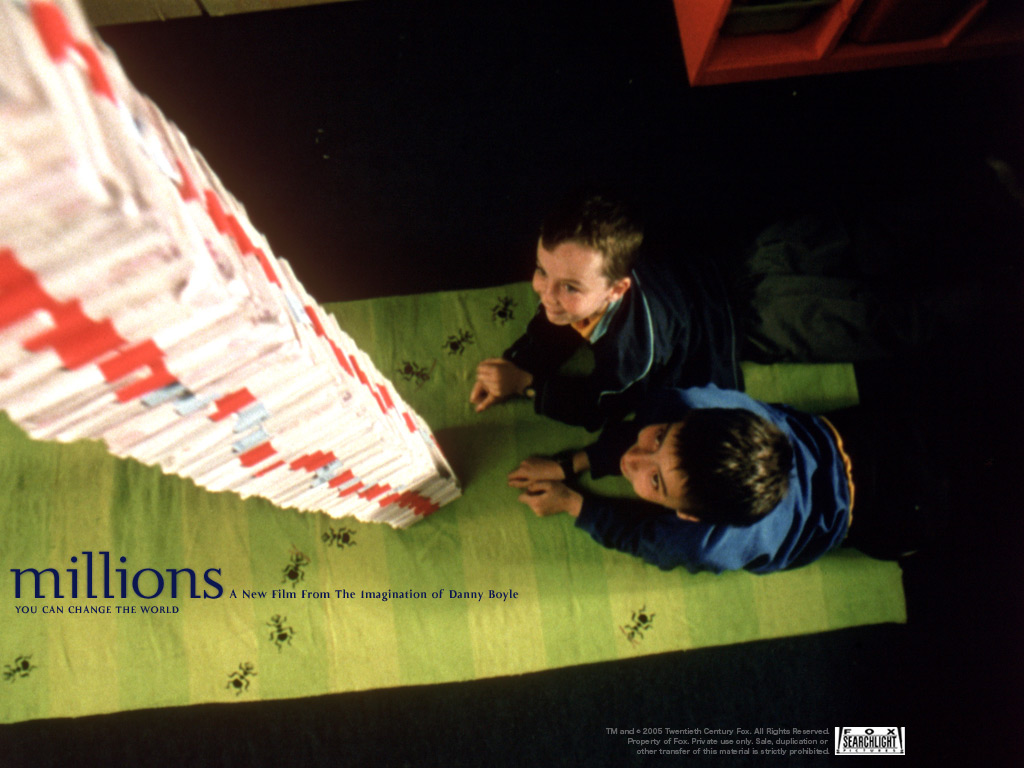
By Matthew Ralph
There’s a scene in the 2004 film “Millions,” where a young boy named Damian (Alex Etel) who routinely sees visions of saints is talking to St. Peter about Jesus feeding the 5,000.
You know the story. It’s a Sunday School staple. A boy, presumably the same age as the kids in the Sunday School class being taught with paper cut-outs on felt board, gives Jesus all his mom packed for his lunch that day – five pieces of bread and two fish. Jesus then passes the modest meal around and next thing you know 5,000 people sitting on a grassy hillside have been fed and there’s still enough for seconds.
It’s a marvelous story, especially when taking into account what Jesus later says in the passage about being the bread of life and how those who seek him will never go hungry. It’s also a good passage to consider when fasting as the hunger pains stir.
That’s not quite the way filmmaker Danny Boyle and writer Frank Cottrell Boyce’s St. Peter tells it. The rough-around-the-edges keymaster of heaven (played by Alun Armstrong) tells the boy Jesus’s miracle that day was actually one of inspiration and not supernatural multiplication.
According to his account, the people gathered that day had more food than they were letting on. They were just stingy and didn’t want to share. But their hearts changed when the little boy came forward and turned his lunch over to Jesus. Suddenly, they didn’t feel too good about hiding loaves and fishes of their own, St. Peter explains.
It’s a perspective that wouldn’t win too many points with many theology professors and certainly not any biblical literalists, but it’s one that has stuck with me since I first saw the film a few years ago.
Within the context of the film, St. Peter’s message to the boy is essentially that, like the boy with the five loaves and two fish, he could inspire hundreds of others by giving away his share of the mysterious “millions” that he believes fell out of the sky.
Given the news of late about the recession we are in here in the U.S., a recent re-reading of the John account of the feeding of the 5,000 put Boyle’s fictional account of the event in a different light for me.
The tighter the economy gets and the harder things begin to look, the more difficult it gets to give to charity. Regular news stories have been appearing lately about how charities are getting hit hard by the recession and that wealthy private donors of foundations and nonprofits may be giving less because of the hit they are taking on their investments.
The logic that an economic recession will naturally lead to less giving and harder times for those most in need may not be entirely accurate – Giving USA Foundation released a report earlier this year stating that recessions in the past have not cut into charitable giving as much as expected – but when times are tough the urge at least to want to hang on tighter to what you have makes a lot of sense.
But as the fictional St. Peter account illustrates, we often have a lot more to give away than we want to admit. Rather than cutting back on our giving during these times we should be increasing what we give and decreasing in areas less important than ensuring others are cared for and fed. Not only that, when we give things often have a strange way of coming back. It’s like that charming Coke commercial where instead of shooting and killing Grand Theft Auto style the video game character is giving out love. You know, the one with the catchy song – “You give a little love and it all comes back to you.”
Whether it’s giving up loaves of bread or giving your widow’s mite to a cause you believe in, the true miracle we all experience this holiday season might just be that in the end we’ll end up, even in a time of hardship, more well off and a lot less stressed out than we imagined.
Leave a Reply